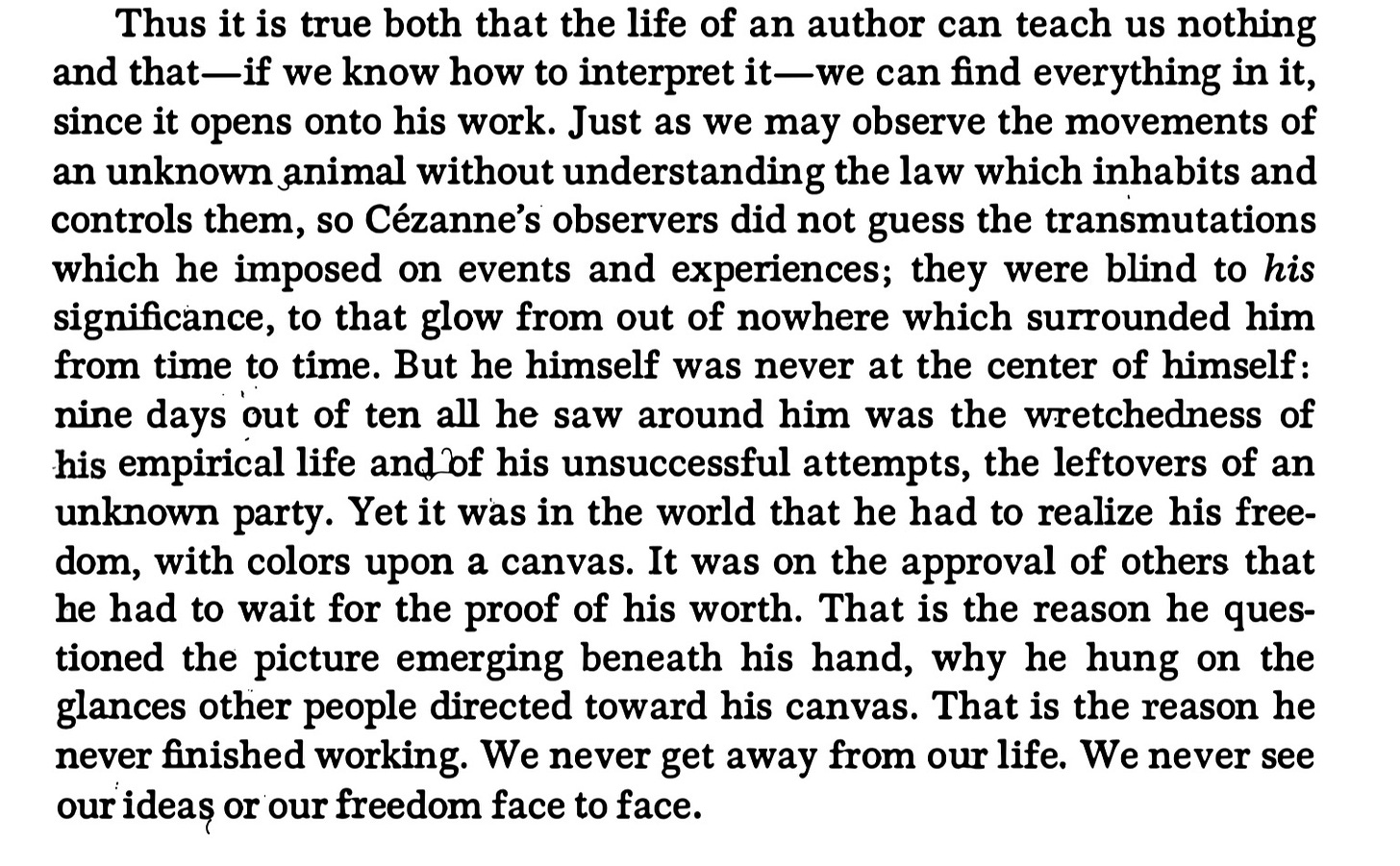“What does it mean to see? With the Impressionists, the question is: what does it mean to experience seeing? … One doesn’t have to think too hard to understand … the reason that painters and sculptors spent all their time during their crucial formative years of youth copying others or mechanically reproducing models of objects. They weren’t doing it so they could learn to copy reality … They were doing it so as to learn how not to think. This is the most important thing of all in art and literature, and hardly anyone can do it or even realises it is the case.”
—Karl Ove Knausgård
I
The work of art is an event, something that happens to you, rather than something one creates. The act of creation, in fact, comes by so immediately and suddenly, or either so gradually as it to be imperceptible except in moments of grace —when one is fully immersed in the making of the work. That is why to say the work is finished one must decide deliberately to ignore it: that is why, with the passage of time, one encounters it once again with stupor, surprised either the result or the circumstances had anything to do with you.
II
It is the work that gives meaning to the accidents of an artist’s life; not the other way around. Without the work, that life is like a text whose meaning remains undeciphered. Merleau-Ponty has a particular idea on this, regarding the painter, Cézanne, certainly related to Sartre’s idea of freedom, which is that “this work to be done called for this life.”
Cézanne, is known, suffered from depression and was thought to be schizophrenic. And that factored into his worldview, the way he saw and reacted to objects, things. This is not the vulgar, common place romantization of the artist as madman, the cliché that in order to make meaningful art one must suffer. That is not what Merleau-Ponty is saying. The Sartrean notion of freedom is that we are thrown into a world —a situation— we do not control at birth, but are nevertheless forced to take a stance towards it. This stance can be negative or positive: even to abstain from engaging with the situation is a choice, for Sartre. And so freedom lies in our engagement or refusal to engage with our situation, which makes us, in a way, responsible for our lives. It is a daunting idea, when one ponders it, but that is what Sartre thinks. And so what Merleau-Ponty is saying is that Cézanne’s work called for that life; in other words that his painting could not have existed, in the manner in which it exists and we encounter it in the world, without Cézanne’s particular situation: constituted in part, of course, by his mental illness. The work is not defined by it; rather it is the measure of his attempt at achieving freedom from those accidents.
Now I want to be cautious here, and not insinuate the act of creation somehow elevates the artist from other subjects. Sartre does not believe this —neither does Merleau-Ponty. In an essay on Sartre Merleau-Ponty wrote that “he [Sartre] refuses in advance the religion of art and its consolations,” which to me is very interesting. “Nothing man does is absolutely pure or venerable, not even, especially not, the "perfect moments" he contrives for himself in life or in art. Man may get beyond his contingency in what he creates, but all expression, even what is known as Great Art, is an act born of man. The miracle,” Merleau-Ponty stresses, “takes place everywhere at ground-level, not in the privileged heaven of fine arts.” Art will not save us. It will not absolve us. It does not have a moral dimension, in that sense. It is cathartic, transgressive in another, utopian sense: in its un-usefulness, its refusal to be utilitarian. It is, as Nietzsche taught us, “not an imitation of nature but its metaphysical supplement, raised up beside it in order to overcome it.”







